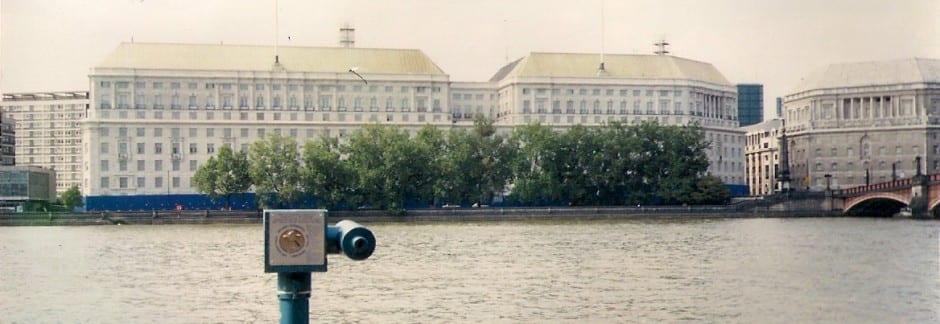In an interesting article in Saturday’s edition of The Daily Telegraph the paper’s security correspondent, Tom Whitehead, provided details of the forthcoming Intelligence and Security Committee report on the murder of Lee Rigby. This is the second substantive newspaper article about the, as yet unpublished, ISC report. Following a previous report published in The Sunday Times in May I wrote a post suggesting that the ISC had leaked. This was significant because leaks from the ISC are rare, the committee has access to some of the most secret material, and members are notified under the Official Secrets Act. Moreover, ISC members frequently attest to the committee’s security and its credibility, not least amongst the intelligence and security agencies, rests on its reputation for not leaking secrets.
Whitehead’s article in this weekend’s Telegraph claimed that the ISC’s report on the Rigby murder, which has been in preparation for some time, is scheduled to be published this week. It claims that the ISC report will reveal that online behaviour of one of Rigby’s killers, Michael Adebolajo was known to MI5 but that more intrusive surveillance was not considered justified. However, the ISC, Whitehead adds, will stop short of saying Rigby’s murder was preventable.
The question is does this represent another leak of the ISC’s report on the Rigby murder?Another leak would be embarassing. The Sunday Times article caused considerable consternation within the ISC when it appeared in May. It is now clear that the article was based on a leak of the ISC report and that this was a significant leak. It will be interesting to see how both of these articles compare with the ISC report when it is eventually published, but it seems apparent that the material in the Sunday Times article came from an unredacted version of the ISC’s report which had been circulated to those agencies involved for comment. As I suggested at the time, members of the ISC are convinced that the leak did not come from within the committee. However, while I suggested in my previous post that circulation of the report within Whitehall would be limited to a very small number of individuals, a leak inquiry launched after the publication of the Sunday Times article revealed that the circulation of the unredacted report included over 100 people across a range of agencies including the intelligence and security services and the police. It is not clear, to me at least, whether the source of the leak has yet been identified but it is clear that ISC members feel that the leak was the product of the expansive nature of its inquiry and the unusually wide circulation of its unredacted draft report.
With regard to the piece in this week’s Telegraph it seems unlikely that this represents another substantive leak of the ISC’s Rigby report. There is nothing in Whitehead’s piece which does feature in the earlier Sunday Times article, which was also somewhat more detailed than Whitehead’s article. The Telegraph article could therefore be little more than a warming up of old news, perhaps on the basis that Whitehead has got wind that the ISC report is finally to published. Another scenario is that whoever was responsible for talking to the Sunday Times earlier in the year may now have had a conversation with the Telegraph, which would suggest that the source of the earlier piece has still not been identified. Either way in terms of the ISC report on Lee Rigby this more recent piece does not add anything to the earlier report. Nevertheless, irrespective of whether the original leak came from the ISC itself, this story is almost certainly an unwelcome reminder of what was perhaps the most significant leak to emerge from the ISC since it was established in 1994.
Further information about parliament and the intelligence services can be found in our book, Watching the Watchers, published by Palgrave.
